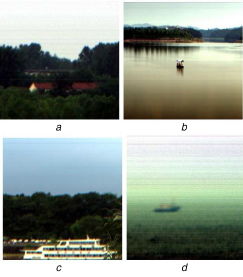Target detection of hyperspectral image (HSI) is a research hotspot in the field of remote sensing. It is of particular importance in many domains. Unsupervised target detection is usually more difficult because there is no prior information about target. Traditional algorithms exploit spectral information, only. Bingliang Hu’s research team’s study introduces the idea of saliency detection from the visual technique into HSI processing domain and proposes a novel approach named spectral saliency target detection (SSD). It establishes a novel salient model, which utilises both spatial saliency and spectral saliency. In the framework of SSD, it combines the model with spectral matching algorithm to make it perform well even in situations where the target is concealed and small. A HSI set comprised of eight different scenes with complex background is setup to evaluate the performance of the proposed algorithm. The final visible detection results demonstrate that the SSD algorithm outperforms the others. The receiver operation characteristic (ROC) curve and area under the ROC curve are applied to evaluate the results. The proposed algorithm shows superior and stable performance.

(Original research article "IET Image Processing Vol. 13, Issue 2, pp. 316-322 (2019) http://mr.crossref.org/iPage?doi=10.1049%2Fiet-ipr.2017.1173 ")
Download: